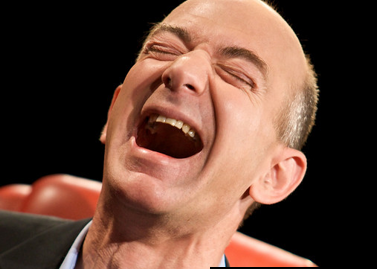In a Financial Times essay, economist Tim Harford finds a link no one else was looking for: the scorched-earth strategies which drive both Amazon and contemporary Russia. An excerpt:
“Brad Stone’s excellent book, The Everything Store: Jeff Bezos and the Age of Amazon, paints Amazon’s founder to be a visionary entrepreneur, dedicated to serving his customers. But it also reports that Bezos was willing to take big losses in the hope of weakening competitors. Zappos, the much-loved online shoe retailer, faced competition from an Amazon subsidiary that first offered free shipping and then started paying customers $5 for every pair of shoes they ordered. Quidsi, which ran Diapers.com, was met with a price war from “Amazon Mom.” Industry insiders told Stone that Amazon was losing $1m a day just selling nappies. Both Zappos and Quidsi ended up being bought out by Amazon.
When the weapons of war are low prices, consumers benefit at first. But the long term looks worrying: a future in which nobody dares to compete with Amazon. Apple is a striking contrast: the company’s refusal to compete aggressively on price makes it hugely profitable but has also attracted a swarm of competitors.
Consider a grimmer parallel. Vladimir Putin’s Russia is the chain store. Georgia, Ukraine and many other former Soviet states or satellites must consider whether to seek ties with the west. In each case Putin must decide whether to accommodate or open costly hostilities. The conflict in Ukraine has been disastrous for Russian interests in the short run but it may have bolstered Putin’s personal position. And if his strategy convinces the world that Putin will never share prosperity, his belligerence may yet pay off.
I feel a little guilty comparing Bezos and Putin. My only regret about Bezos’s Amazon is that there aren’t three other companies just like it. I do not feel the same about Putin’s Russia.”
Tags: Brad Stone, Jeff Bezos, Tim Harford, Vladimir Putin


